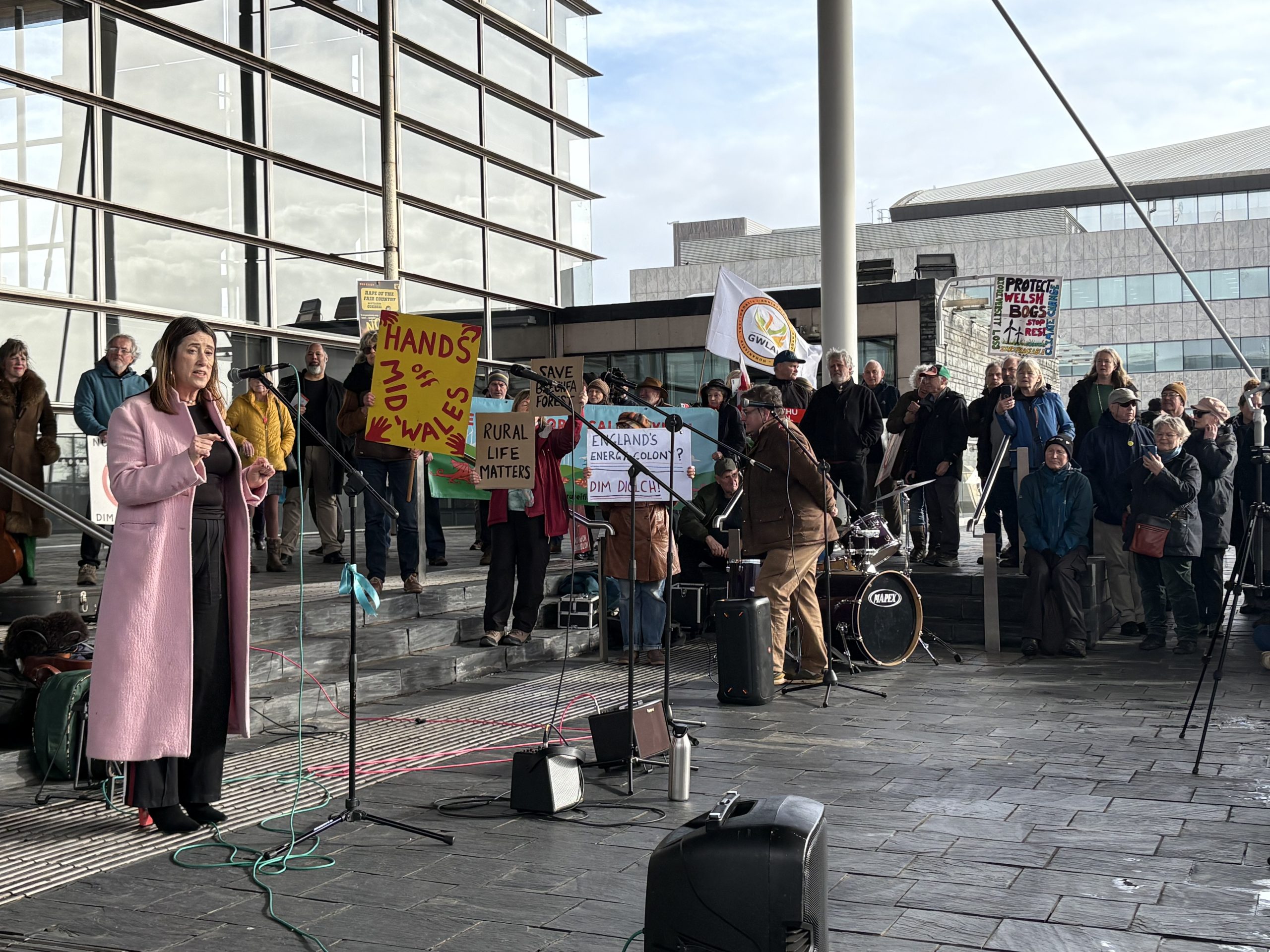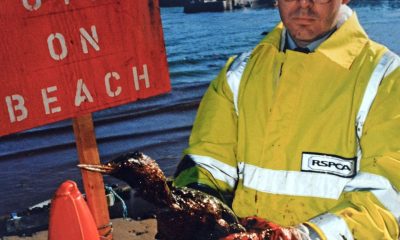News
Soft drink craving leads to driving ban

A DRIVER who was banned for being over the limit made a ‘dreadful mistake’ by getting behind the wheel of his car to go and find some soft drinks.
Aidan Windsor, aged 21, of Primrose Close, Neyland, appeared before Haverfordwest Magistrates Court on Tuesday (Dec 4) to plead guilty to a charge of driving whilst above the limit.
Windsor had told officers he had driven to get a soft drink as he couldn’t find any in his friend’s house.
Prosecuting, Hannah George told the Court: “On November 14, at twenty to nine in the morning the defendant was stopped driving his vehicle on the A478 at Glandy Cross.
“The police officer signalled for him to stop and he did so. He smelt strongly of intoxicants and he failed his roadside breath test.
“He was arrested and taken to Haverfordwest Police Station where a breathalyser test was done and his lowest reading was 55.”
The legal limit is 35.
Defending, Mike Kelleher added: “This is a young man of hitherto clean character who made a dreadful mistake on this morning.
“He had been out the night before but when he woke up he couldn’t find a soft drink so made his way out and he was on his way to the garage to buy some soft drinks. It didn’t work out that way and he was stopped by the police.
“He was in work but his job requires a driving license. I would ask that you consider him a suitable candidate for the drink drive course as this will be beneficial for him.”
Magistrates told Windsor to take some soft drinks with him the next time he goes out and was disqualified from driving for 14 months.
He was also fined £120 for the incident and told to pay £85 in court costs and a £30 victim surcharge.
Windsor was offered the chance to take the drink drive course but was warned that he would be back in court for a much more serious offence if he was caught driving during his ban.
Charity
Christmas jumper day fundraiser helps support lifesaving volunteer service

A WEST WALES charity that delivers blood, medication and urgent medical supplies for the NHS has received a welcome funding boost thanks to the generosity of local driving examiners and instructors.
Blood Bikes Wales has thanked the West Wales Driving Examiners for raising money through a festive Christmas Jumper Day, with additional contributions from Approved Driving Instructors and staff from the Driver and Vehicle Standards Agency.
The fundraising effort has resulted in a sizeable donation that the charity says will go directly towards keeping its volunteer-run service on the road.
Blood Bikes Wales provides a free out-of-hours courier service for the NHS, transporting blood, samples, donor breast milk, medication and other urgent items between hospitals and healthcare sites. The service helps reduce costs for the health service while ensuring patients receive time-critical treatment as quickly as possible.
Mark, the charity’s West Area Representative, accepted the cheque on behalf of the organisation at a small presentation outside the local driving test centre.
A spokesperson for Blood Bikes Wales said the support would “go a long way in helping us continue supporting NHS services and patients across the region”.
They added: “We’re truly grateful for the generosity and community spirit shown by the West Wales Driving Examiners, local ADIs and DVSA staff. Every donation helps keep our bikes fuelled, maintained and ready to respond when the NHS calls.”
The group added a light-hearted note about the day, joking that while there may not have been an official “pass mark” for festive knitwear, the examiners would certainly have earned top marks.
Blood Bikes Wales is powered entirely by volunteers, who give up their time to carry out thousands of deliveries each year, often late at night and in poor weather conditions.
Anyone interested in supporting the charity, either through donations or volunteering, can find more information on the Blood Bikes Wales website.
News
Protest at Senedd as climate groups clash on how Wales should go green

Campaigners demand landscape protection and underground cables while environmentalists warn Wales cannot slow the clean energy transition
A PROTEST took place outside Senedd Cymru on Wednesday (Feb 11) as campaigners gathered to oppose large-scale wind farms, energy parks and new overhead pylons across rural Wales.
Residents from mid and west Wales, including farming families, countryside groups and community activists, assembled on the steps of the Welsh Parliament holding banners reading “Hands off Mid Wales”, “Rural life matters” and “Protect Welsh bogs”.

Many said they support renewable energy in principle but fear that current proposals would industrialise rural landscapes while delivering little benefit to local people.
Among those addressing the crowd was Jane Dodds, leader of the Welsh Liberal Democrats, who renewed calls for ministers to require electricity cables to be placed underground rather than carried on new lines of pylons.

Calls for underground cables
Dodds said Wales must not lose its countryside in the rush to decarbonise.
“We cannot afford to lose our countryside,” she told protesters. “Once these wind turbines and pylons are in place, the impact on our landscapes will be long lasting and, in many cases, irreversible.
“Local people feel their concerns are being overlooked while large developers push ahead with major projects. That is not how the transition to green energy should work.”
She pointed to a recent budget agreement which secured £1 million for a Visual Impact Innovation Fund to trial undergrounding technologies and explore alternatives to overhead infrastructure in sensitive areas.
“We need a balanced approach,” she said. “We must move away from fossil fuels, but we must also protect the beauty and character of rural Wales.”
Why people are protesting
Speakers and attendees raised concerns about:
• visual impact of turbines and pylons on open countryside
• effects on peatland, wildlife and habitats
• loss of productive farmland
• heavy construction traffic through small villages
• profits flowing to distant shareholders rather than host communities
Several campaigners argued that decisions feel “done to” communities rather than shaped with them, with limited consultation and little long-term return.
Some called for smaller-scale, locally owned schemes instead of what they described as “mega-projects”.
Climate groups defend renewables
In response to the protest, Climate Cymru said Wales must not step back from wind power and other renewables, warning that continued reliance on fossil fuels would worsen both the climate and cost-of-living crises.
Stan Townsend, spokesperson for the group, said: “Rising energy bills and energy insecurity are already affecting families, farmers and businesses across the country.
“Turning away from renewables would mean deeper dependence on volatile, expensive, polluting fossil fuels. We need clean, home-grown energy to protect people and the planet.”
He said Wales has some of the best wind resources in Europe and a major opportunity to cut bills, create skilled jobs and strengthen energy security.
Community ownership ‘key to support’
Community Energy Wales said many objections could be eased if local people had ownership or a financial stake in developments.
Leanne Wood, co-executive director, said: “If communities can part own developments, many of the objections to new wind turbines can be overcome. Ownership brings control.
“This would lock the profits into those communities and potentially reduce bills.”
The organisation is working to enable locally generated renewable electricity to be sold directly to local consumers so that wealth stays within towns and villages.
A wider debate
The demonstration highlights a growing divide over how Wales meets its net zero targets.
While environmental groups stress the urgent need to expand renewable energy quickly, rural campaigners say the Wales-wide push must not come at the expense of landscapes, farming and community consent.
Dodds urged the Welsh Government to strengthen planning, consultation and benefit schemes so that communities see clear advantages.
For many at the Senedd, the message was clear: renewable energy is necessary — but only if local people share the control, the profits and the decisions.
News
West Wales Together Alliance launch in Haverfordwest

A NEW alliance bringing together community groups, trade unions, faith leaders and campaigners from across west Wales is set to launch in Haverfordwest next month.
The West Wales branch of the Together Alliance will officially begin with a public meeting at 7:00pm on Wednesday (Feb 18) at Haverfordwest Mosque, Cherry Grove.
Organisers say the event will unite local politicians, farmers, artists, anti-racist organisations and faith groups in response to what they describe as growing “voices of division” in national and local politics.
In a statement, the alliance said: “Those who preach division are becoming more confident. Their false promises seize on very real economic problems and scapegoat migrants, Muslims and refugees.
“But we can change things together. The voices of unity can grow stronger. Strength lies in solidarity and working together for hope, not despair.”
The group aims to build cooperation between communities and challenge racism and extremism through grassroots organising. It says hundreds of organisations and individuals nationwide have already signed up.
The Haverfordwest launch forms part of a wider mobilisation ahead of a major national demonstration planned for London on March 28.
Several high-profile supporters have also backed the campaign, including comedian and campaigner Lenny Henry, who said: “We stand for love over hate, hope over fear and unity over division. We’re coming together against racism.”
Singer Paloma Faith added: “There is no world that I want to live in where discrimination is acceptable for anything.”
Organisers say anyone interested in promoting inclusion, equality and community solidarity is welcome to attend.

-

 Health7 days ago
Health7 days agoHealth board targets rise in steroid and gym drug use across west Wales
-

 Health16 hours ago
Health16 hours agoHealth Board to decide future of nine key services at two-day meeting
-

 Crime7 days ago
Crime7 days agoTeacher injured and teenager arrested for attempted murder at Milford Haven School
-

 Business3 days ago
Business3 days agoComputer Solutions Wales under fire from customers
-

 Business6 days ago
Business6 days agoSix-figure negligence victory leaves retired builder trapped in divorce limbo
-

 News7 days ago
News7 days agoReform appoints Dan Thomas to lead party in Wales
-

 Sport7 days ago
Sport7 days agoWales name squad for Six Nations opener against England
-

 News7 days ago
News7 days agoAnother Senedd member defects to Reform as Lib Dem MP hits out




























